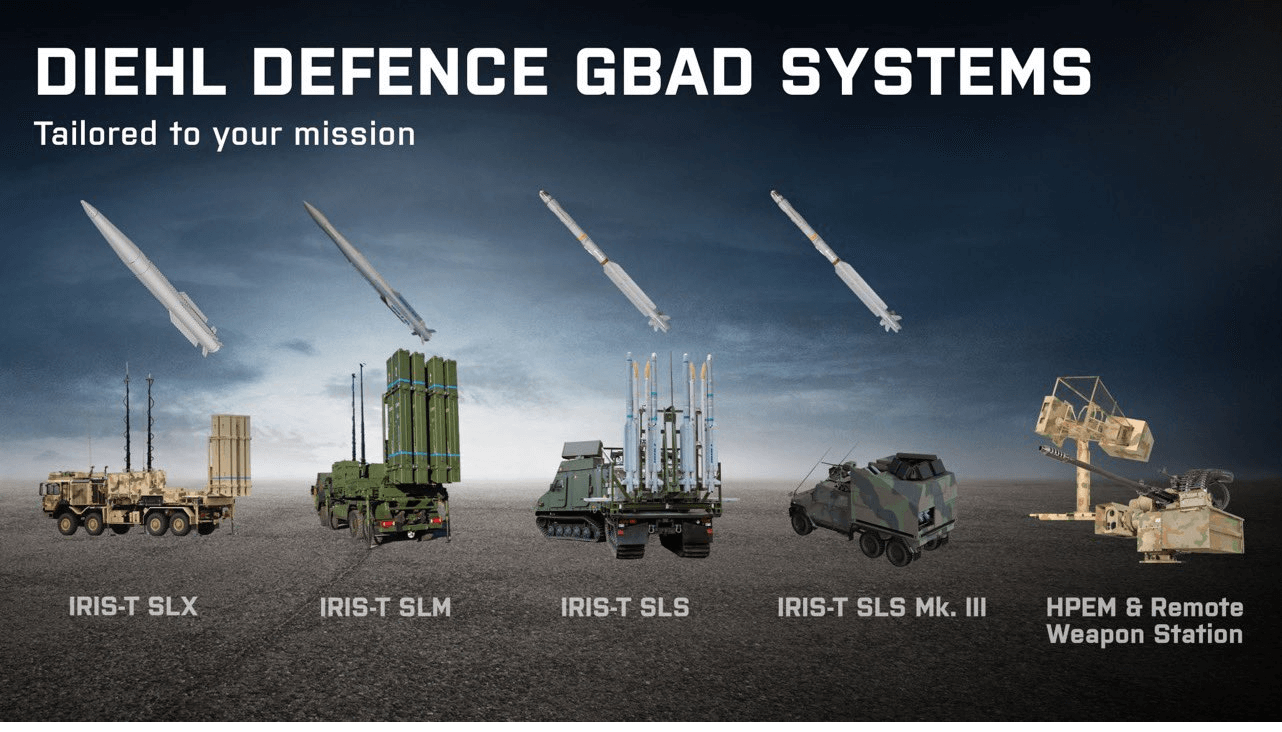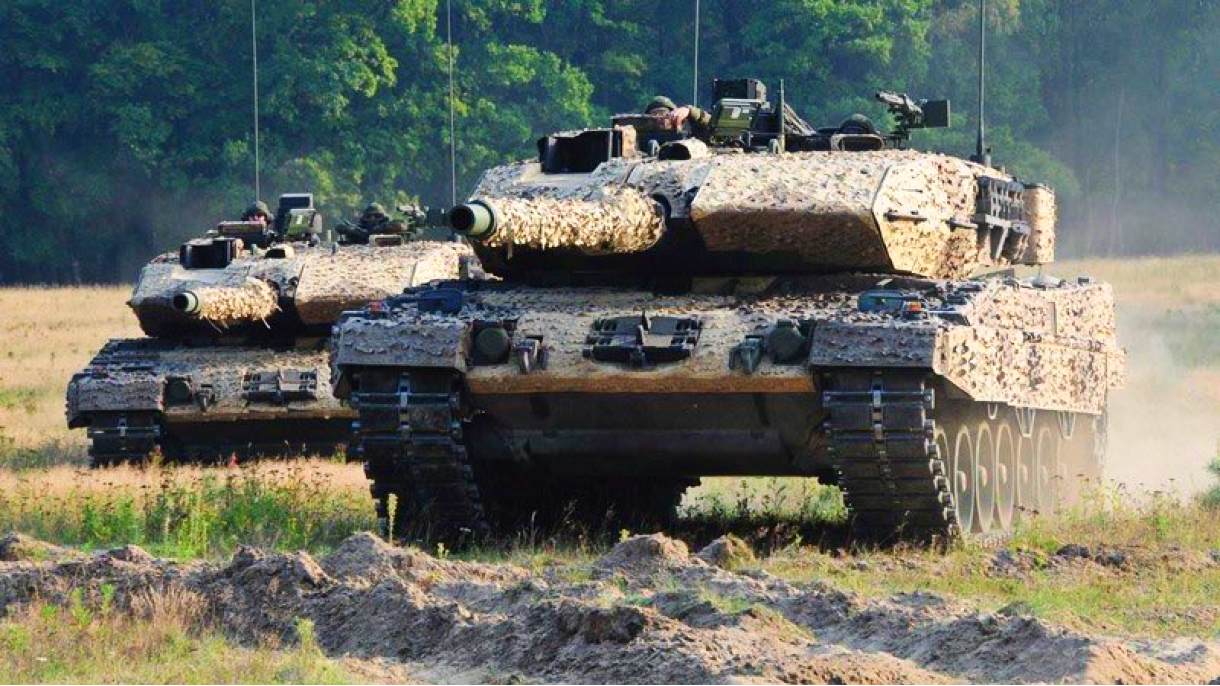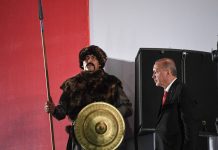Spurred by the Russian invasion of Ukraine, German defense companies have ventured more boldly into the global defense market. But the fledgling defense business is now tainted by accusations of kickbacks and dubious practices.
India’s Acquisition Of MQ-9 Drones Surreal Disconnect From Reality As IAF Worryingly Short On S-400, 4.5-Gen Fighters
Hensoldt AG, whose technology is installed in many German weapons systems such as the Eurofighter combat jet, the Leopard-2 battle tank, Class 212 submarines, and the IRIS-T air defense system, has been accused of receiving kickbacks over deals with Qatar and Uganda.
After the 78 years of peace in Europe was disrupted by the Russian aggression against Ukraine, Germany has started to take center stage in bulwarking the European defense.
Its defense companies are foraying into new markets, which is imperative to raise the stature of the German defense industry and help Chancellor Olaf Scholz’s goal of increasing the country’s defense spending.
The Bavaria-based firm, which makes radar and sensor systems for aircraft, ships, and tanks and equipped Ukraine’s air defenses with radar last year, said its order book has swelled to a record 5.36 billion euros ($5.70 billion).

The flagship German defense firm is now doing business in countries where it had no presence earlier. This leaves them with no other resort but to take the services of agents and intermediaries, which meddle in dubious dealings.
The German magazine Der Spiegel has recently accessed documents that indicate wrongdoings on the part of Hensoldt AG. What makes it more scandalous is that the German government is part owner of the company with 25.1 percent stakes.
The company has profited majorly from the Russian invasion of Ukraine, with its share prices having almost tripled since the war. The company has been equipping the radar systems in the IRIS-T air defense system that protects the air space over Kyiv.
The company seeking to expand its global business quickly has issued an internal directive that calls for generating 50 percent of its sales abroad. The “cumbersome procurement programs of the Bundeswehr (Germany’s armed forces)” have hindered the company’s ambitious goals.
However, the foray into the international defense market proved “tricky” as Hensoldt didn’t have a branch office and had to rely on local partners. “It was hardly possible, however, to keep a close eye on the methods they used,” the report read.
This latest taint on Hensoldt comes close to the revelations that its subsidiaries in the United Kingdom and South Africa sold defense equipment to Saudi Arabia despite an explicit regulatory ban.
Der Spiegel evaluated the documents with the reporting network European Investigative Collaborations, a Greek project partner called Reporters United, and the Israeli investigative platform Shomrim. Other big names in the German defense industry, including tank manufacturer Krauss-Maffei Wegmann (KMW), also appear in the documents.
Hensoldt refuted the allegations as baseless. Joachim Schranzhofer, the company’s Head of Communications, said, “Der Spiegel is unable to provide us with any concrete facts or evidence of misconduct by Hensoldt Employees.
Rather, the cases described show that our internal control mechanisms function at all levels and point out any dangers and risks early so they can be subjected to closer scrutiny.” He added: “Under no circumstances do we make payments to agents without a contractual basis and proof of performance.
Supplying Surface-To-Air Missiles To Ugandan Despot Through A Shady Deal
The report brings home the point of the Hensoldt’s shady dealings through its expansion in Uganda, which has been ruled by a despot Yoweri Museveni for 37 years. While the company’s 2020 assessment underlined the high risk of corruption in doing business in Uganda, it did not deter Hensoldt from “gaining a foothold” in the market.
The German magazine accessed a confidential internal document of the company that throws some light on how the local consulting firm was hired for having connections with President Museveni’s son, Muhoozi Kainerugaba. The Africa Business Development Director of Hensoldt wrote to his colleagues that they had access to the army and special forces “which are led by Museveni’s son, an acquaintance of ours.”
Kainerugaba has got training in prestigious military academies around the world and has earned himself the moniker of “tweeting General” for often taking to social media sites to write explosive tweets that often send local and regional politics into a tailspin.
Most recently, he gave a veiled threat to invade Kenya and earlier this year offered to deploy Ugandan troops to defend Moscow from “imperialists.” He is notorious for incarcerating and torturing opposition leaders before the last presidential elections in 2021.
Hensoldt bagged a contract to sell surface-to-air missile defense systems to the Ugandan Air Force in 2021. The Israeli firm Bird Aerosystems manufactured the system, and Hensoldt provided the components.
There were reports of alleged kickbacks paid by the Israeli firm to a high-ranking military official. The management of Hensoldt ordered an investigation into the deal, but, in the end, it supplied the components in question before even completing its probe.

Supplying Weapons To Qatar
Former German Chancellor Angela Merkel had approved the sale of Leopard tanks and howitzers built by Krauss-Maffei Wegmann (KMW) to Qatar. The total worth of the defense equipment has been US $ 2 billion.
Hensoldt also supplied Active Electronically Scanned Array (AESA) radars for Eurofighter Typhoon to be exported to Kuwait and Qatar. The magazine report raises questions on the deal considering the “precarious human rights situation” in Qatar.
Hensoldt Is Riding The Defense Boom
In light of the renewed threat from its East, Germany has announced the 100 billion Euro fund to augment its defense over the next few years. Hensoldt expects to ride the German defense boom with new orders worth billions of Euros.
The company has been supplying TRML-4D military radar vehicles, which are being used by the Ukrainian army. The German Leopard 2 tanks are also “experiencing a renaissance” due to the invasion of Ukraine. And Hensoldt expects to take part in the orders. “I expect this will lead to orders in the short term,” Chief Financial Officer of Hensoldt told the press while launching the company’s annual report earlier this year.
“The Bundeswehr (German army) has to find replacements for the tanks handed over to Ukraine, and Norway has recently ordered new Leopard 2s. The strong air defense of Ukraine is also due to Hensoldt radars,” he added.
The company hopes that Germany’s commitment to defense spending will be demonstrative for other NATO countries in Europe, and they, too, will adhere to the 2 percent defense spending clause.
The company’s annual report shows that its revenues grew 15.8 percent to 1.7 billion euros in 2022, and it expects sales growth of around 7-10 percent in 2023, the company said while publishing its results. Adjusted earnings before interest, tax, depreciation, and amortization (EBITDA) rose by 12 percent to 292 million euros.
In the first quarter of 2023, the company increased its revenue by a whopping 18 percent to EUR 338 million. In the first quarter of 2022, it was EUR 286 million. The key drivers of the growth in the first three months of 2023 were orders for TRML-4D radars to support Ukrainian air defense and to equip PUMA and Leopard 2 platforms.
- Ritu Sharma has written on defense and foreign affairs for over a decade. She holds a Master’s Degree in Conflict Studies and Management of Peace from the University of Erfurt, Germany. Her areas of interest include Asia-Pacific, the South China Sea, and Aviation history.
- She can be reached at ritu.sharma (at) mail.com




